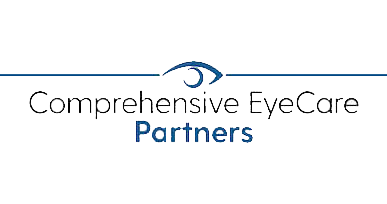Do you have an FSA? If you contribute to a flexible spending account (FSA), you can set aside pre-tax money from your paycheck and use it towards your eye care expenses.
With the clock ticking away, this is the best time to spend those funds before you run out of time. Keep reading to learn more about FSAs, how they differ from an HSA, and how to spend your flex dollars on eyecare before the year ends!
What is an FSA?

An FSA is a tax-free savings account that lets you deposit funds to pay for eligible healthcare costs. These include out-of-pocket expenses.
You can only have a flexible savings account if your employer offers one.
The contribution limit for an FSA plan changes each year.
For 2022, you can put in up to $2,850. You determine how much you want to contribute to your account at the start of the year.
You can adjust your contributions during the year if you have a qualifying life event like a marriage or divorce. Otherwise, you’re not allowed to change the amount you decided initially.
FSAs are time-sensitive. You need to spend any money you put in your FSA within the calendar year of your plan.
If not, you forfeit the remaining amount to your employer when the year ends.
However, there are two exceptions:
1. Your employer can allow for a 2 and a half months grace period after your company’s plan year, where your contributions roll over into the following year. That means you can still use the funds if you have medical expenses within that grace period. Once it ends, you lose whatever is left in the account, and the money goes back to your employer.
2. Alternatively, your employer can include a carryover condition that lets you add a maximum of $550 to the following year.
The Differences Between an FSA and an HSA
An HSA (a health savings account) is a tax-exempt account that allows you to put funds away to cover the cost of qualified medical expenses. You can only become eligible for an HSA if you have a high-deductible health plan.
The main difference between FSA and HSA is that you control an HSA. With an FSA, it’s controlled by your employer, including its terms.
Also, unlike an HSA, FSA accounts have a use-it-or-lose-it requirement. According to the rule, you’ll lose any flex dollars you don’t use by the end of the year to your employer. With HSA, your contributions roll over into the next year.
How to Use Your FSA for Eye Care
Cataract Surgery

Do you need to have cataract surgery? You can use your FSA or HSA funds to pay for cataract surgery. Since cataract surgery is correcting a vision problem, it is eligible for using these funds.
A standard cataract procedure is typically covered by insurance plans. However, the same is not true of most intraocular lenses, which are implanted during cataract surgery to replace your natural lens and allow you to see clearly once more.
If you want a premium lens that goes beyond a monofocal IOL, this is something that you need to pay for out of pocket. But if you have an HSA or an FSA, you can use your tax-free funds to cover part of a premium IOL, like multifocal lenses, the Light Adjustable lens, or a toric IOL if you have astigmatism.
Using your HSA or FSA can help you significantly reduce the out-of-pocket cost and allow you to experience improved vision at all distances. If you want to reduce your dependence on glasses and contact lenses after cataract surgery, using your FSA to cover part of the cost of a premium lens is an excellent way to use these funds before they expire at the end of the year.
LASIK
Are you tired of always reaching for your glasses first thing in the morning or taking out your contacts every night before going to sleep? LASIK is an excellent way of achieving visual freedom from glasses and contact lenses.

Suitable candidates can also use their flex spending dollars to help pay for their LASIK procedure. Many patients use their FSA to pay for as much of their LASIK procedure as possible. Doing this can help you make the most of your tax-free dollars.
Medical Eye Exam

If you’re having difficulties with your vision, your ophthalmologist may recommend a medical eye exam to diagnose and treat an eye condition like glaucoma, diabetic retinopathy, or cataracts. During your medical eye exam, your eye doctor will examine how healthy your eyes are and determine any issues with your vision before determining an appropriate treatment plan.
If you need to schedule a medical eye exam, this is something that your FSA or HSA can cover. The same is also true if your spouse or an eligible dependent needs one, even if they are covered under a different insurance plan.

Put Your Flex Dollars to Good Use Before They Expire
If you’ve been considering a vision procedure like LASIK, now is the perfect time to schedule an appointment and make the most of your tax-free funds while being proactive about your vision. If you have an FSA, there are several ways to make the most of your eye care needs before they expire at the end of the year.
Schedule an appointment at Evergreen Eye Center today!

